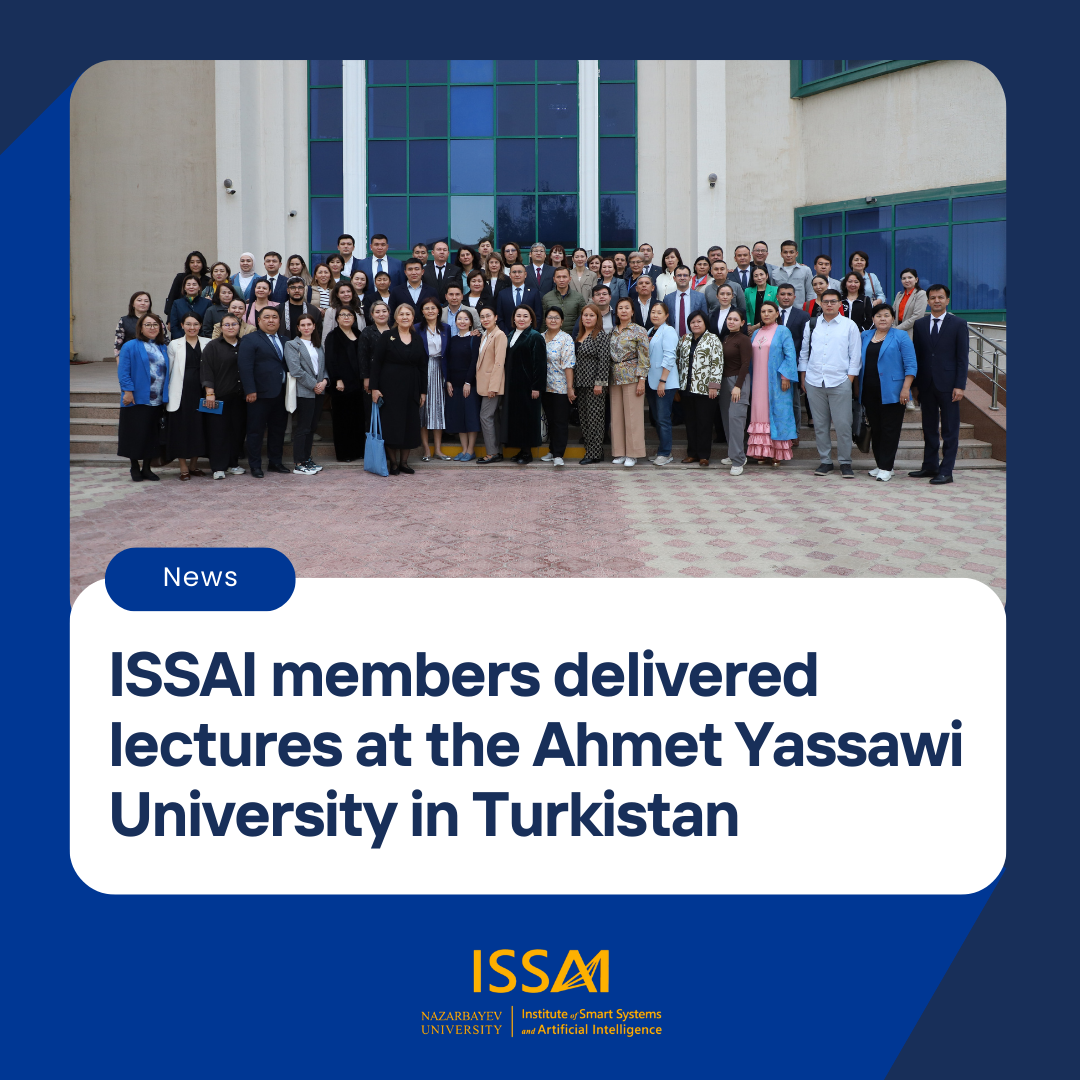On 10-11 October 2024, Senior Data Scientist of the Institute of Smart Systems and Artificial Intelligence (ISSAI) Dr. Zhanat Makhataeva and postdoctoral researcher Dr. Azamat Yeshmukhametov participated in the third module of “Digitalisation of Education” during a professional development program for deans of Kazakhstani universities, titled the “Institute of Academic Leadership Deans’ School” at Akhmet Yassawi International Kazakh-Turkish University (AYU) in Turkestan.
Dr. Zhanat Makhataeva presented a lecture with two parts: AI in Learning and Teaching and Avatars and Mixed Reality in Education. During the presentation, Dr. Zhanat shared international experiences of implementing augmented reality, AI, and virtual avatars in human-computer interaction, as well as advancements in augmented reality technology. She also emphasized ISSAI’s projects and developments in AI and computer vision and the Institute’s role in the development of AI for Kazakh. During the presentation, Zhanat explained the concept of human-machine symbiosis, describing the history of augmented and virtual reality technologies. She overviewed state-of-the-art research projects investigating applications of virtual avatar systems in human-technology interaction in education.
Dr. Azamat Yeshmukhametov showcased his research project on tensegrity robots, explaining their structure, key features, benefits, and potential applications in industry and manufacturing. He shared details about a collaborative project on innovative sensor technologies, developed with Prof. Gulnur Kalimuldina’s Nanomaterials Laboratory at Nazarbayev University. Prof. Kalimuldina developed a TENG sensor, which was used to create smart insoles. Dr. Azamat Yeshmukhametov and PhD student Aisulu Tileukulova developed a new Stewart platform architecture. These two products will be combined to create a solution aimed at improving the diagnosis and rehabilitation of children with autism and other motor disorders.
The feedback from the audience was positive, as the deans were particularly impressed with ISSAI’s projects and expressed interest in exploring potential collaborations.



